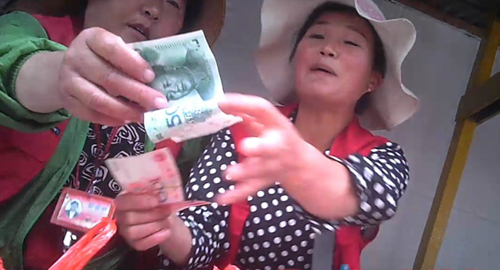North Korea’s network of General Markets continues to proliferate while the leadership collects fees from vendors. Recently, the authorities have ramped up their pursuit of those running cottage industries from within their own homes, illustrating the increasingly important role these funds play in sustaining the regime.
Since 2012, the North Korean authorities have sought to expand the number of market stalls across the country in order to bring in more revenue for the regime. The markets have even been permitted to remain open on national holidays such as Kim Il Sung’s birthday, something that would have been deemed unacceptable in the past.
“Ministry of People’s Security (MPS) personnel have been visiting residents’ homes with the head of the People’s Unit and threatening them, saying, ‘You will be arrested if you continue to do business at home from April; only sell in the markets.’ Merchants who refuse to follow or complain are threatened with being handed over to the MPS,” a source in South Hamgyong Province told Daily NK on March 7.
A source in Ryanggang Province added, “The officers are visiting private homes that have previously been used for business in some regions, repeatedly telling them to do their business at the markets.”
To catch vendors avoiding fees, the General Market management offices are working in conjunction with district administrative bodies to compile relevant data for each MPS unit in a given area.
The steady increase in home-based entrepreneurs has risen in tandem with the proliferation of state-sanctioned General Markets. Home business has its merits because people can avoid paying fees to the market management office and also cut transport costs.
This is especially true in the more destitute provincial regions. For example, a separate source in Ryanggang Province reported that in some General Markets in the province, approximately one-third of the stalls are vacant due to the prevalence of active home businesses.
“Residents [who are confronted by MPS officials in their homes] complain that they should receive state rations if they are prohibited from selling at home. The officials respond that they should cease ‘trying to turn a profit only for themselves.’ ‘Just pay the [market fees],’ they say, ‘and you’re free to do as you please,'” she explained.
“MPS officials keep trying to appease them by reiterating that doing business at the market is entirely permissible, but for many, it just feels like another form of exploitation [at the hands of the regime].”




















